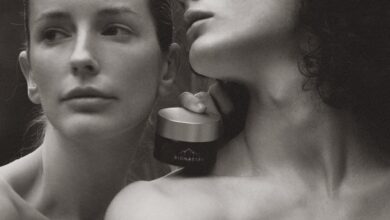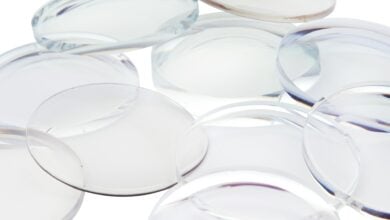Pianos are beautiful, versatile instruments. Under the right musician’s fingers, they can play incredible works of art that will span the ages. The pianos themselves will last for decades or longer only if they receive adequate care, though. Refer to the MusicCritic’s guide on pianos to make your bond last longer, be it a digital or beginner’s piano everything that you need to know has it covered. From reviews to guides and even playlists of your most sought musicians. Read on to find out about four ways to make sure a piano remains in playable condition for as long as possible.
Treat the Instrument With Respect
Most serious piano damage occurs because musicians don’t afford their instruments the respect they deserve. They treat them like large, bulky pieces of furniture when, actually, they are incredibly complex pieces of musical machinery with thousands of moving parts. Treating a piano with respect doesn’t just mean not using it as a cup holder or a bookshelf. When moving pianos to new homes or studios or into and out of storage units, musicians must exercise the utmost care to avoid causing irreparable damage to those instruments.
Moving a piano safely requires specialized equipment, knowledge, and expertise, so it’s never wise for pianists to attempt DIY relocations. Instead, Texan pianists should call Piano Movers of Texas to make arrangements. This is true not just when moving across the state, but also when moving a piano across town. High-value or especially fragile pianos can sustain damage even when they are moved across the room, so don’t risk strapping an expensive instrument into the back of a pickup truck and calling it a day when moving it to a new home.
Pay Attention to Environmental Conditions
Excessive humidity can be a serious problem for pianists. Pianos contain not just precision wood parts machined to fine tolerances, but also leather, felt, and cloth parts that are all susceptible to moisture damage. Exposing a piano to excess humidity can dull hammer action, rust internal parts, cause keys to stick, and render a piano unplayable. To protect pianos located along the coast or in humid regions of the state from damage, close all the windows in the music room before it rains and close the top board after playing.
Excessive dryness is just as bad, if not worse, than excessive humidity, especially in artificially dry rooms. If the air gets too dry, it will impact the many wooden and felt components in the piano, causing them to shrink. This can cause the soundboard and joints to come apart, causing unusual sounds and loosening the tuning pegs. The best way to avoid excessive dryness and its damaging consequences is to use a humidifier in the piano room in dry climates.
Excessive temperature changes can exacerbate moisture problems as the water in the air condenses. This can cause strings and other metal parts to rust and felt to absorb the moisture, which will dull the piano’s action and muddy its tone. Try to avoid sudden temperature changes, especially when moving the piano between rooms or to a different home or studio.
Keep the Piano Clean
Pianos should be dusted regularly with a soft cloth or feather duster to avoid dulling hammer action and causing unwanted sounds inside the piano. Pay special attention to the keyboard, but avoid using cleaning solutions since most of them contain alcohol that can crack the keys. Instead, dust it frequently and wipe it down with a tiny amount of soap and water if it becomes excessively dirty. One great way to avoid excessive dirt, dust, and grit on the keyboard is to avoid playing with dirty hands.
Never let the piano come into contact with potentially damaging liquids like cosmetics, insecticides, aerosols, paint thinners, or any petroleum-based products. These can cause superficial damage even in small quantities, and more serious spills can cause irreparable damage to internal components.
To avoid spills, it’s important to avoid placing water on top of the piano. A vase of flowers, for example, may look pretty sitting on the top of an upright piano, but it can cause a good deal of damage. Plastic and vinyl products, even when solid, can also wind up causing superficial damage, and heavy objects can cause vibrations and damage the instrument’s tone when placed on the back.
Have the Piano Serviced Regularly
Pianos must be serviced regularly to keep them in peak condition. Most experts recommend having them tuned or adjusted at least every six months, although this recommendation is very loose and the need for tuning will also depend on the piano’s environmental conditions, age, and how frequently it is played. Pianists should also expect their instruments to need tuning after they have been moved or have been brought out of storage.
Tuning is one of the most important elements of routine maintenance, but it’s equally important to have instruments inspected and serviced. A piano technician can identify and correct progressive problems early before they become major disasters and perform routine tasks that help to maintain peak performance. Without proper maintenance, many pianos that would otherwise be enjoyable to play wind up in the dump, so don’t underestimate the importance of calling in professional help when it’s needed.
Most service visits will involve action regulation, pitch raising, and voicing, at a minimum. Some technicians can also perform minor repairs on-site or even fully recondition aging or worn instruments, although this usually requires moving the instrument to a piano repair technician’s workshop instead of performing repairs in-home. As with any instance in which the piano must be moved, musicians should ensure they take proper precautions when moving the instrument to avoid further damage.
The Bottom Line
Pianos are large, complex instruments, many of which hold substantial monetary and sentimental value, whether they are played frequently or not. Piano care and maintenance aren’t only important for professional musicians who need their instruments to stay perfectly on-pitch. Even those who only play their pianos infrequently should ensure they receive proper care. That means keeping them clean, avoiding unnecessary risks, and hiring professionals to tune the piano, service it, and move it to avoid damage to the instrument and minimize the chances of premature failures of internal parts.




